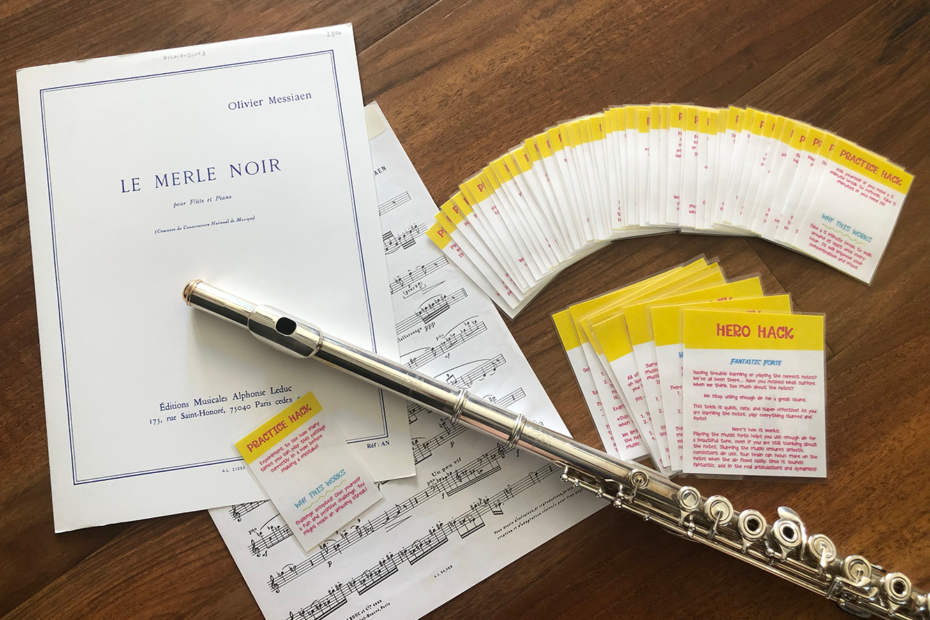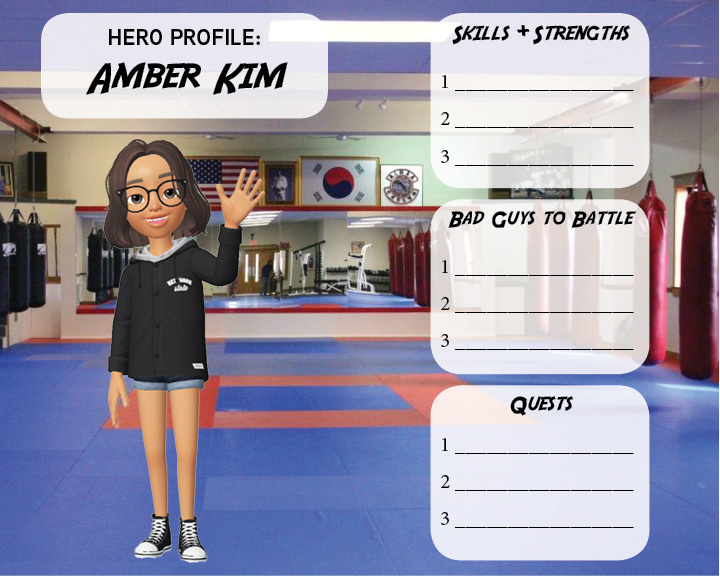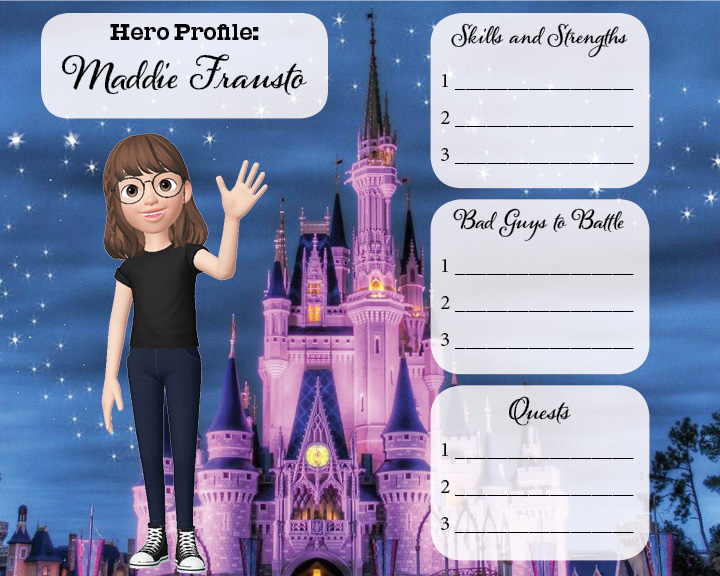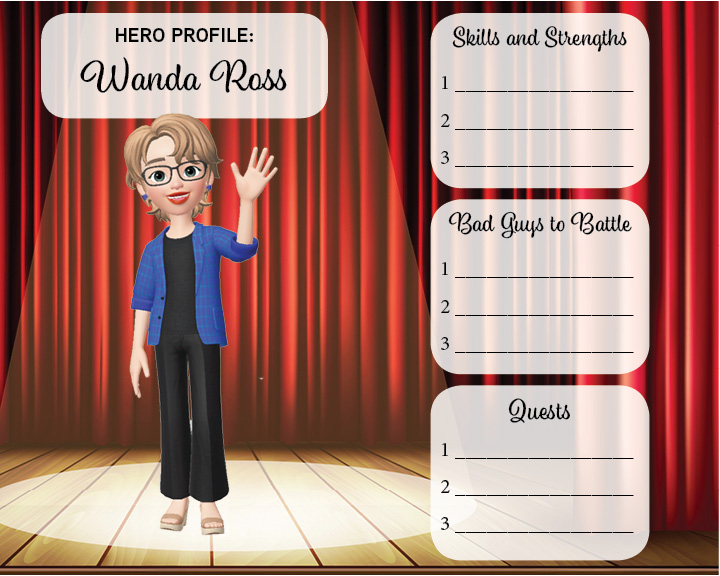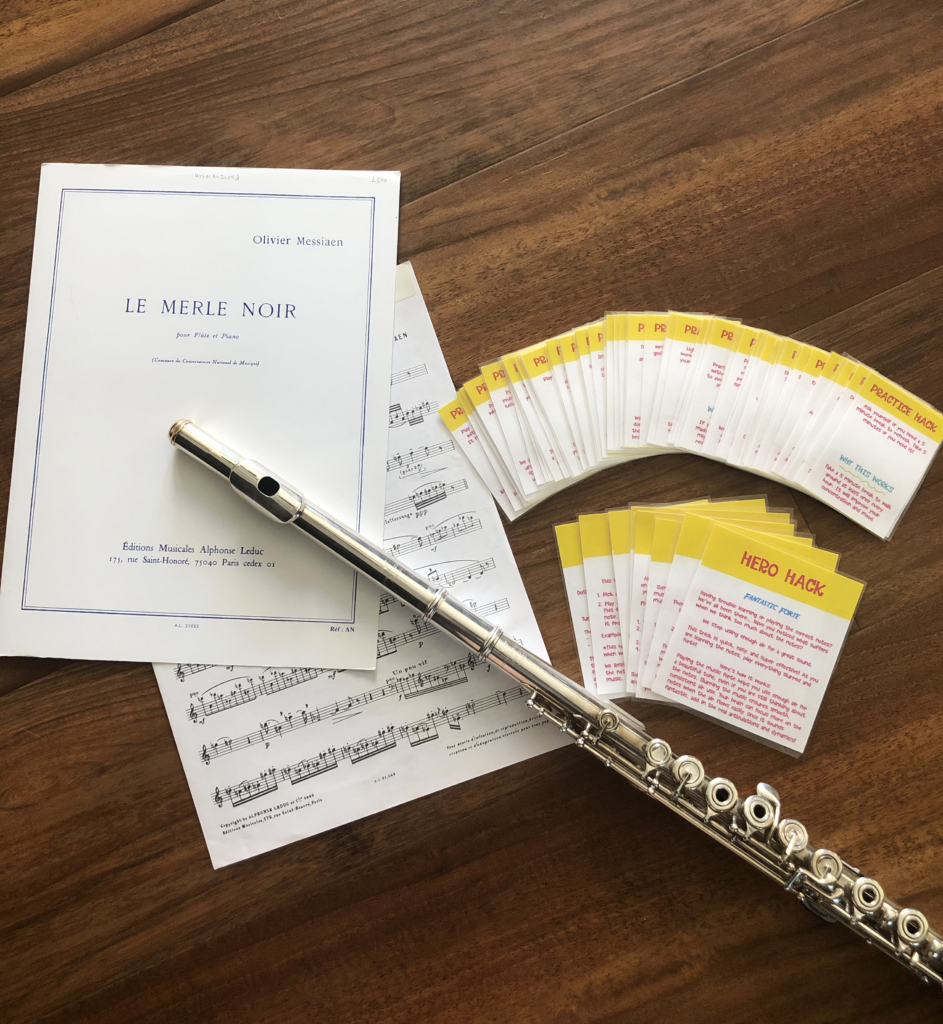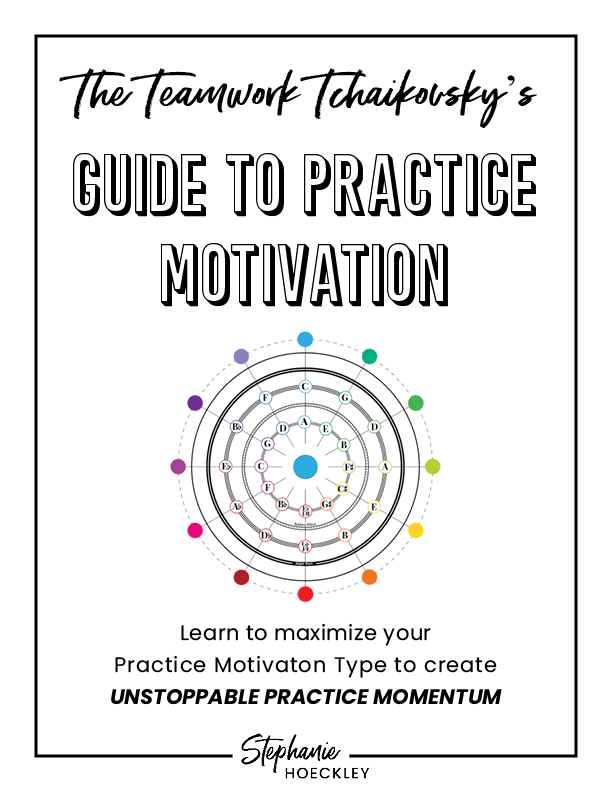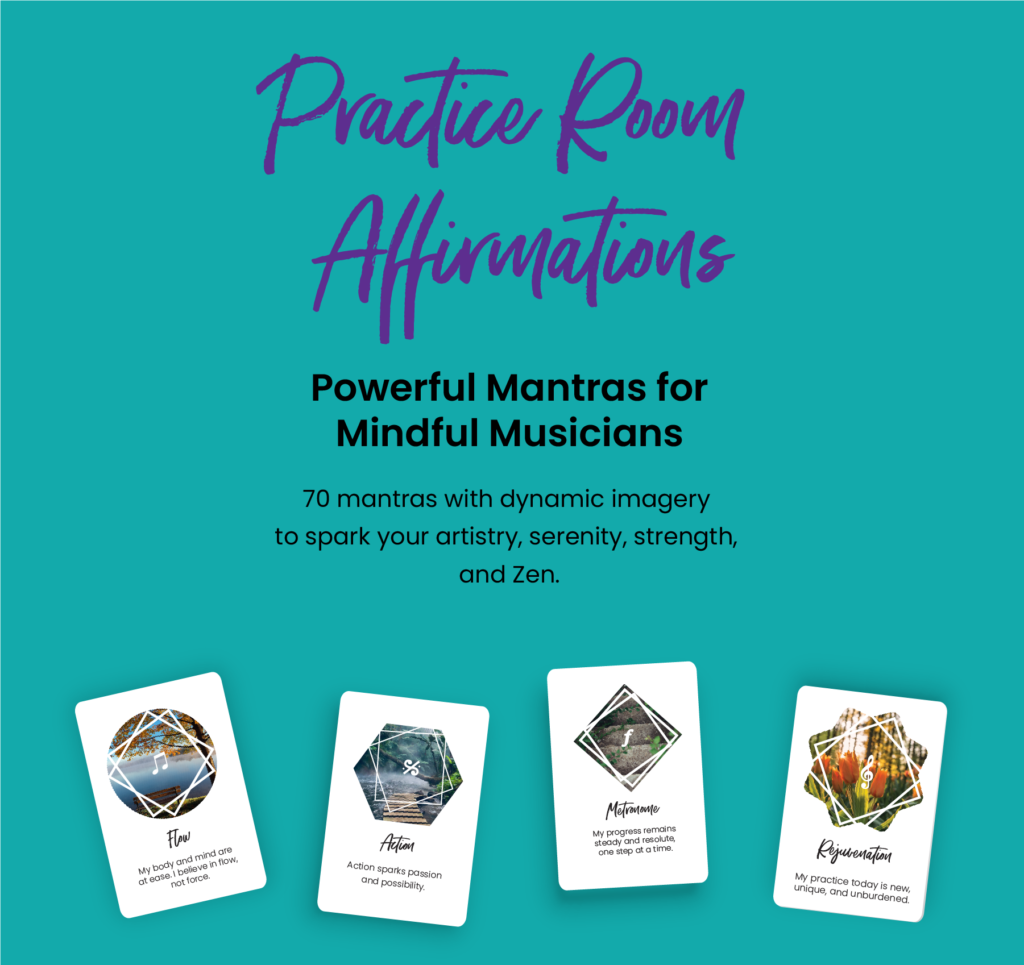Hi there! If you’re new to music gamification, welcome to the high-performance game squad!!
You’re probably here because you want to learn about how to use gamification to level up your music practice or private lesson teaching. (Or maybe you’re totally bewildered by a weird word called “gamification” and you’re curious to learn more.)
Look no further, because you’re exactly where you need to be! If music gamification is new to you, I hope it’s made a grand entrance into your life at the perfect time, just like it did for me!
I’m excited to share with you 3 quick and easy ways you can use gamification to start off the new school year with musical enthusiasm and motivation!
Hang on a sec, what is gamification?
Gamification is when we apply game elements to real-world or productive activities. It’s basically a way to make activities more enjoyable, productive, and, dare I say, even irresistible! There are all kinds of game elements, but a few popular examples are interactivity, levels, points, avatars, and in-game currencies. Other game elements can include the format or type of game, such as card games or board games. Because there are so many different kinds of games, there are also endless possibilities of how we can combine game elements and music with gamification!
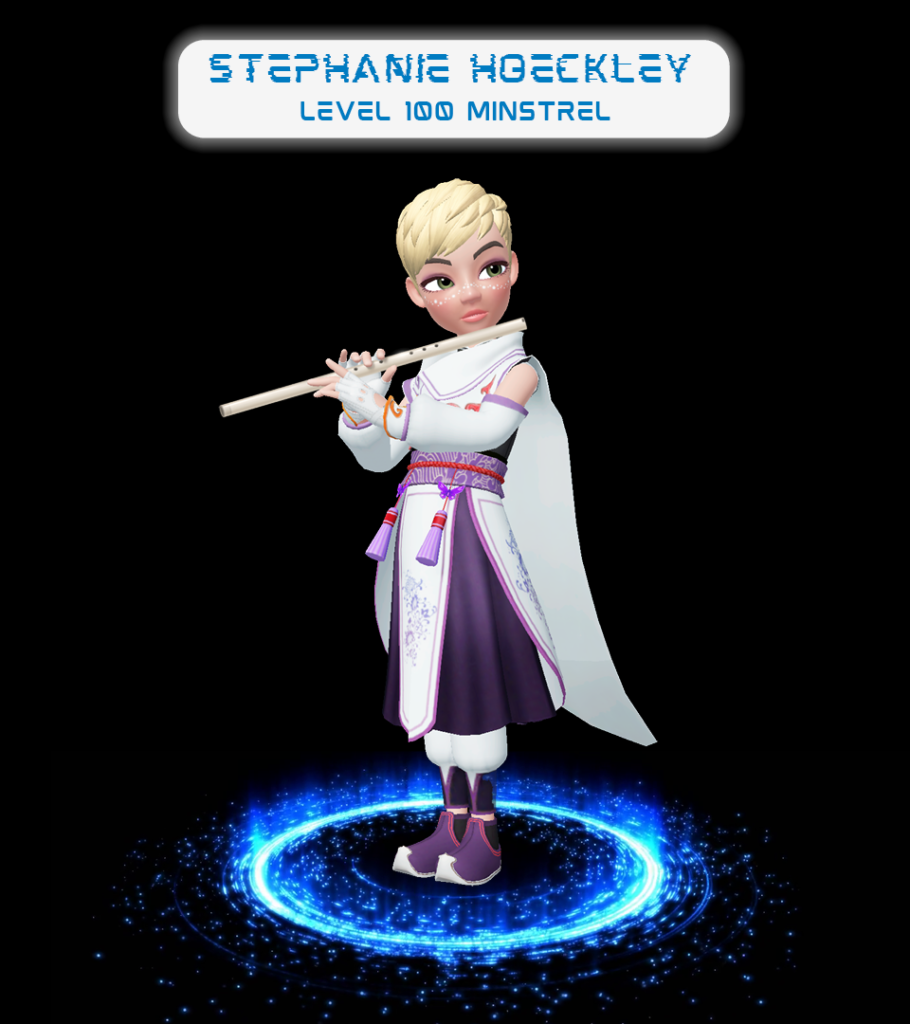
One of my favorite examples of music gamification is in my shop: I turned my best practice techniques into a card game called the Practice Hack Stack! Handing a musician a list of practice techniques as a wall of text is intimidating and ineffective, so I put each practice technique on a card and turned it into a game instead. All you have to do is draw a card from the stack to navigate obstacles in your practice! Along the way, you’ll learn which practice hacks are most effective for different kinds of scenarios. Check it out here if you’d like to see gamification in action!
There’s an interactive element to games that helps make music a more fun and positive experience for everyone involved. I try to tap into that whenever I can because it’s a foolproof way to light up musicians of all ages! You can’t beat putting a smile on someone’s face as they’re learning and growing. 🙂 With gamification, the fun is contagious (even for adults)!
Why should I use gamification in music?
Gamification and music go together like nutella and a spoon. Or like tacos and guacamole. Both are great independently, but when we put them together, they enhance one another! I’ll explain briefly why that is, but I’ll save the intricate game mechanics for a future post! (Sign up here to hear about new blog posts!)
First, I’d like you to think for a moment about a game you’ve enjoyed playing.
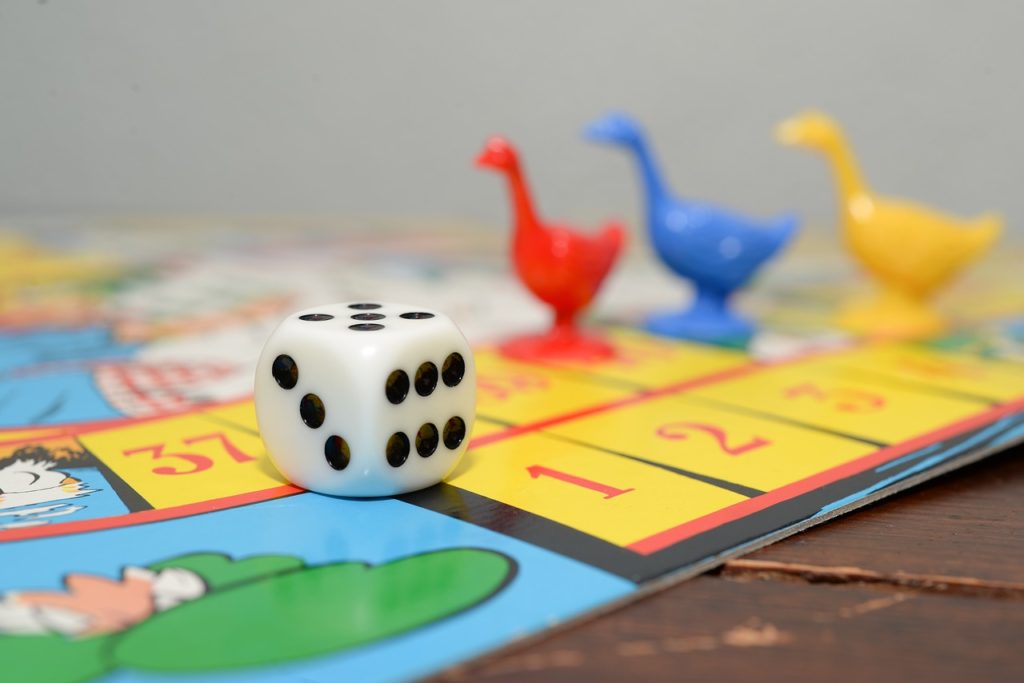
Perhaps you were engaged in playing a board game like Pandemic (teehee) or Scrabble, or a card game like Poker or Spades? Maybe you got sucked into phone app games like Candy Crush or Angry Birds? You might have logged on to a computer game like World of Warcraft or The Sims, or maybe you played a video game like Animal Crossing or DOOM.
How did you feel as you played this game? You were probably smiling a lot, were in the zone, and time flew by. Do you remember feeling motivated to succeed in the game by winning, helping your team, gaining experience points, leveling up, or strategizing?
Now think objectively about the kind of actions you took in the game. Were the tasks repetitive? Time-consuming? Did they require a lot of thought, planning, and concentration?
Now, normally when we’d describe a task as repetitive, time-consuming, and requiring concentration, we’d call it tedious and run the other direction!! We would probably dread starting the task or maybe avoid doing it at all.
But when we play games, we do all kinds of tasks that we would normally avoid because our experience is transformed.
Placing card after card on the table one at a time? Sounds boring and pointless. Staring at a computer screen and clicking for 2 hours straight? Nah, I’ll pass. Knowingly taking risks that might lead to mistakes or failure? ABORT!!
When part of a game, though, we actually ENJOY doing these kinds of tasks. And afterward, we feel cheerful and fulfilled instead of depleted and irritated. Wild, right??
What causes this transformation?
1) Our mindset
2) Games activate the core drives that are part of our human nature.
To start playing a game, you have to opt-in and be willing to play. By opting in, you also have ownership over your experience and your decisions. You have the choice and you choose to play!
As you play the game, your core drives are activated and it motivates you to think, take action, and work hard. The games we really enjoy often activate multiple core drives at the same time!
Games also clearly tell you when you’ve won or lost by giving you specific feedback with things like your score, points, a percentage rating, or raking on a scoreboard. This specific feedback tells you your strengths and weaknesses, which creates a feedback loop! Even if you lose, you still feel cheerful because the feedback from the game helps you understand where you went wrong. Most of the time, we’re geared up and ready to try again with a new angle or strategy!
Let’s transition this into a music scenario.
Thinking a bit pessimistically, music is an inherently repetitive and tiresome activity. We have to practice our instruments frequently and play the same sections of music over and over to be able to perform at a high level. It takes a lot of concentration and brainpower to play well, listen critically, and brainstorm for actionable solutions to our mistakes.
Is this sounding familiar? Just like in games, we complete repetitive tasks to develop musical skills and gain experience. In music, we can also know if we’ve “won or lost” by listening critically for mistakes or areas we can grow in the same kind of feedback loop.
With gamification, the repetitive tasks in musicians’ practice don’t need to be boring or dull. Identifying and addressing mistakes and weaknesses doesn’t have to be debilitating or soul-crushing. When we take the challenging aspects of music and combine them with game elements, everyone wins and we create music in a happier, more joyful way!
As a musician or music educator, you can gamify different elements of your practice and lessons and it will activate the same core drives and feelings of joy that you experience when playing games!
Musicians thrive as confident, capable players when we switch from thinking, “music is hard and I need to avoid mistakes at all costs or else I’ll feel stupid” to “I enjoy practicing because I know mistakes are necessary and they help me learn and grow.” Gamification bridges that chasm because we’re much more willing to try new things.
Let’s dive into these 3 simple ways you can use gamification in your music practice and lessons! I’ve picked 3 gamified music activities that I enjoy using at the beginning of the new school year, but I can guarantee that they’re fun and effective at any time of year!
Music Gamification Ideas
1. Gamify introspection and goal-setting for the new year.
You and your students can create your own musical avatars or bitmojis and add them to your own Musical Hero Profile where you include:
- 3 strengths you have that help you succeed in music (can be music skills or personality traits)
- 3 areas you would like to improve (that you can create steps towards): Bad guys to battle
- 3 long-term goals for the year: Quests!
Here’s are a few of my students’ Hero Profiles! They customized their avatars and I used their interests to pick the backgrounds.
2. Use fun themes to create excitement and variety
I really enjoy monthly themes, and creating them is one of my favorite parts about starting a new school year! As the months go by, themes help me feel like the new month is a fresh and exciting start. My students look forward to upcoming events and themes when I give them teaser descriptions in advance! Despite being fun, they’re also useful and you can use them to your advantage as a musician, educator, or student. I create monthly themes and events in my studio that address relevant topics!
To start, think about the music opportunities you have coming up this year. You can create practice or learning themes to help prepare for performances and auditions! Have a month without a performance? The theme could be FUNdamentals where you go back to the basics and make them as fun, engaging, and refreshing! Do you have your first audition coming up in 2 months? You can read and learn about managing performance anxiety with a James Bond theme because he’s cool under pressure! Pick some of your favorite James Bond quotes to motivate you and maybe wear a fancy outfit as you’re reading. It makes anything nerve-wracking easier to tackle!
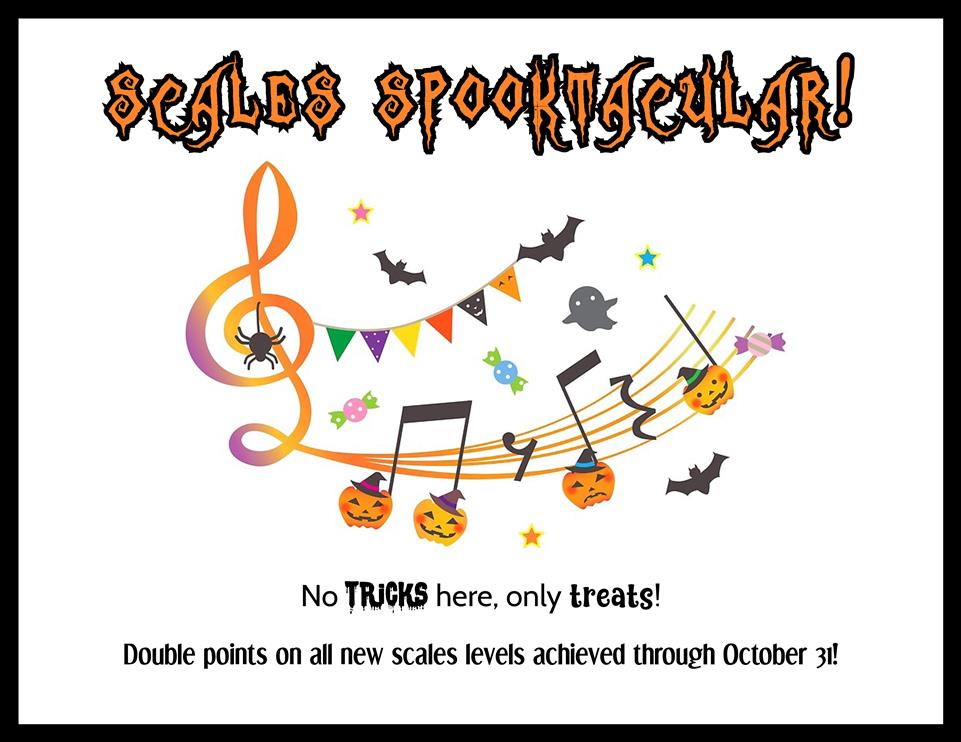
You can also use holidays to create events and themes. One of my favorite holidays is Halloween!! I love dressing up and being theatrical, so an event I’ve created in the past is called “Scales Spooktacular” where my students dress up in their costume and record the scale that scares them the most! (Another option is to play your scales “scary fast” for faster technique!)
3. Create a progress map (so you know you’re actually getting somewhere!)
This is REALLY helpful for organizing your time when you have months to prepare for something. There’s nothing worse than working on the same piece for months and having no idea if it’s improving or how much you have left to polish. All of a sudden, the performance date is 3 weeks away and you’re thinking, “Why did I not take this more seriously 3 months ago when I had time??”
This one takes a little bit of planning, but it will pay off in heaps of confidence and performance treasure, matey!!
To start, pick a deadline for a goal you have or an audition/performance date. Work backward and create different performance milestones that help you achieve peak performance well in advance of your deadline! You can keep track of where you are in the thick of it all AND see the end of the tunnel.
You can make a map out of anything.
- A rainbow, where each color is a different performance milestone and you document your progress as you go
- A Candy Land board (it’s perfect, it’s already got different realms for you to conquer!)
- An actual map with pictures of places you’d like to visit someday
Here’s an example so you can see what a progress map is in its most basic form. The sky’s the limit!

Have Fun!
Games are an incredibly positive and motivational way to teach music. With so much time spent addressing weaknesses and mistakes in practice and lessons, musicians can become defensive, hypersensitive, or overcritical. With games, we approach music from a healthier mindset. We’re more willing to try new things! We’re open to making mistakes and failing, because with games, we learn, we fail, we try again, and it’s all literally fun and games. But in reality, games build resilience and help musicians of all ages develop a growth mindset, two incredibly helpful skills to have in music AND in life.
I hope this post fired up your imagination and these 3 gamification ideas kick off your new year with a smile! If you’d ever like to talk about how YOU can improve your musical journey with gamification, I’d love to talk to you! Head on over to the Contact page to say hello, or check out that spiffy Practice Hack Stack Game if you want to level up your practice skills!
Have fun and game on,


About the Author | Dr. Stephanie Hoeckley, Flutist, Educator, & Gamification Guru
Hi! It’s nice to meet you! Thanks for stopping by my blog! My name is Dr. Stephanie Hoeckley, and I’m a professional flutist and music educator in Phoenix, AZ. I’m a firm believer in making all activities as fun and enjoyable as possible, especially with music games and gamification! I use gamification to help musicians and educators like you hack your motivation, organize your time, and level up your performance skills so you can create the musical reality of your dreams! And I help music educators activate this same superpower for their students, too.
Join the Sunshine Squad
If you enjoyed this post, you are welcome to join my Facebook group, the Sunshine Squad: A Joyful Community for Classical Musicians! This community is for classical musicians and music educators that want to beam joy into their performing and teaching careers with creativity, games, and a healthy mindset!
www.facebook.com/groups/sunshinesquadmusic
